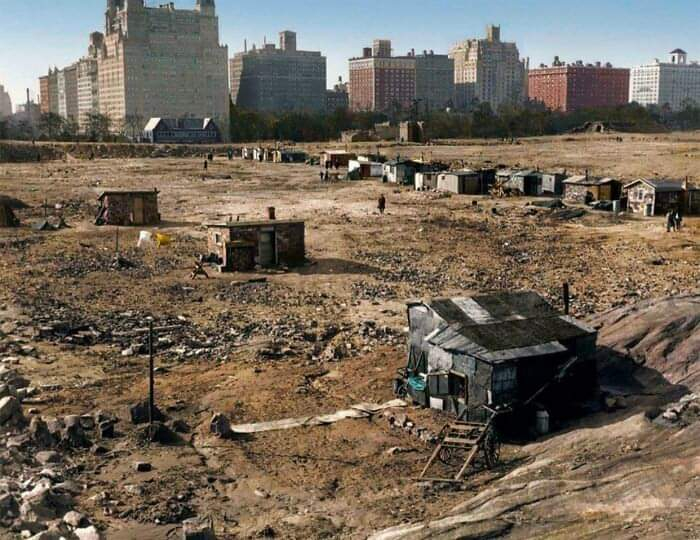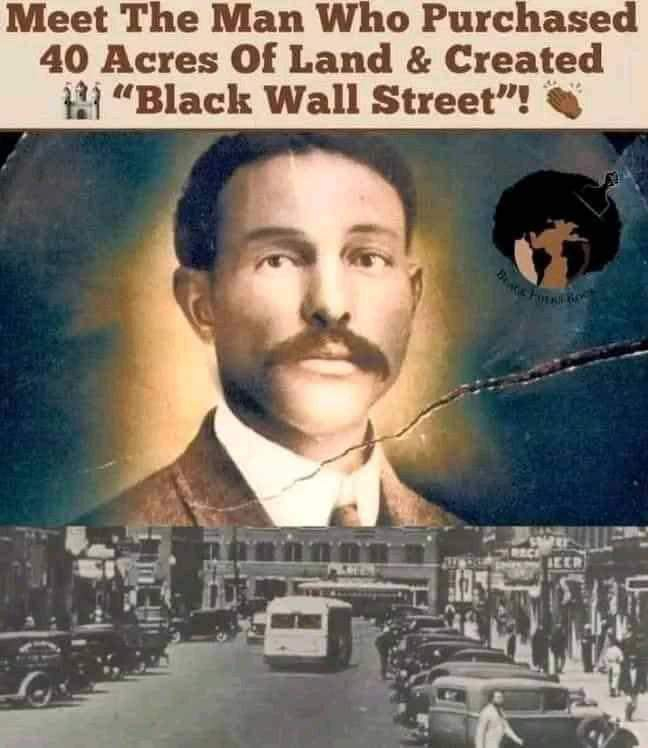You might have heard of Black Wall Street. Meet the founder, O.W. Gurley.
In 1905 Gurley and his wife sold their property in Noble County and moved 80 miles to the oil boom town of Tulsa. Gurley purchased 40 acres of land in North Tulsa and established his first business, a rooming house on a dusty road that would become Greenwood Avenue. He subdivided his plot into residential and commercial lots and eventually opened a grocery store.
As the community grew around him, Gurley prospered. Between 1910 and 1920, the Black population in the area he had purchased grew from 2,000 to nearly 9,000 in a city with a total population of 72,000. The Black community had a large working-class population as well as doctors, lawyers, and other professionals who provided services to them. Soon the Greenwood section was dubbed “Negro Wall Street” by Tuskegee educator Booker T. Washington.
Greenwood, now called Black Wall Street, was nearly self-sufficient with Black-owned businesses, many initially financed by Gurley, ranging from brickyards and theaters to a chartered airplane company. Gurley built the Gurley Hotel at 112 N. Greenwood and rented out spaces to smaller businesses. His other properties included a two-story building at 119 N. Greenwood, which housed the Masonic Lodge and a Black employment agency. He was also one of the founders of Vernon AME Church.
#BlackHistory #History You might have heard of Black Wall Street. Meet the founder, O.W. Gurley.
In 1905 Gurley and his wife sold their property in Noble County and moved 80 miles to the oil boom town of Tulsa. Gurley purchased 40 acres of land in North Tulsa and established his first business, a rooming house on a dusty road that would become Greenwood Avenue. He subdivided his plot into residential and commercial lots and eventually opened a grocery store.
As the community grew around him, Gurley prospered. Between 1910 and 1920, the Black population in the area he had purchased grew from 2,000 to nearly 9,000 in a city with a total population of 72,000. The Black community had a large working-class population as well as doctors, lawyers, and other professionals who provided services to them. Soon the Greenwood section was dubbed “Negro Wall Street” by Tuskegee educator Booker T. Washington.
Greenwood, now called Black Wall Street, was nearly self-sufficient with Black-owned businesses, many initially financed by Gurley, ranging from brickyards and theaters to a chartered airplane company. Gurley built the Gurley Hotel at 112 N. Greenwood and rented out spaces to smaller businesses. His other properties included a two-story building at 119 N. Greenwood, which housed the Masonic Lodge and a Black employment agency. He was also one of the founders of Vernon AME Church. #BlackHistory #History



